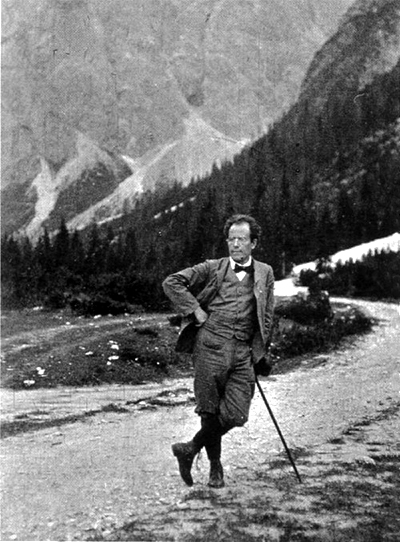
Gustav Mahler’s attachment to the idea that art is a mirror of nature can be found echoing throughout his works, including performance indications that refer both to nature in its broadest sense and to specific elements of the natural world.
Yet the pastoral element in Mahler is often presented through a language of brokenness, as in the third movement of his third symphony, where the appearance and disappearance of the posthorn can also be likened to the processes of memory depicted in Marcel Proust’s À la recherche du temps perdu, notably the madeleine episode in Du côté de chez Swann.
This according to “In search of lost time: Memory and Mahler’s broken pastoral” by Thomas Peattie, an essay included in Mahler and his world (Princeton: Princeton University Press, 2002 185–98; RILM Abstracts of Music Literature 2002-7257).
Today is Mahler’s 160th birthday! Above, the composer in Fischleintal in 1909; below, the movement in question.
[youtube=https://www.youtube.com/watch?v=12T0R5KIIwU]
Related post: Mahler and Beyoncé





